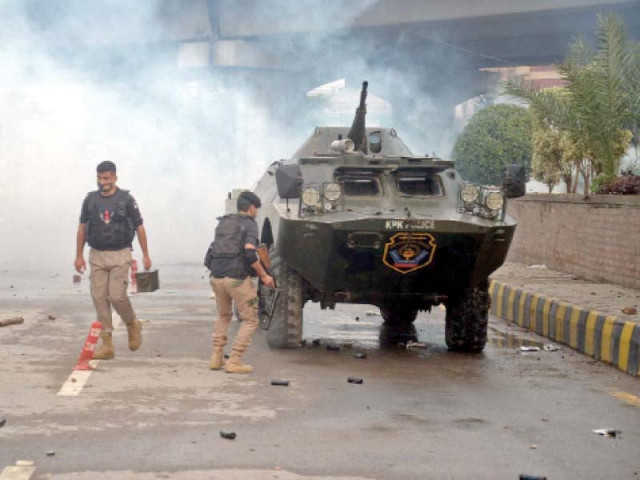Wars started by small clique: expert
Dr Tariq Rahman says few people make decisions clandestinely, without consulting stakeholders

Wars in Pakistan were usually started by a small clique of the most important 'de jure offices' of the state, said Humboldt Laureate Professor Dr Tariq Rahman.
These members make decisions about war and peace clandestinely, without consulting other equally important stakeholders and without following procedures established for taking such momentous decisions, Rahman said addressing 21st Hamza Alavi Distinguished Lecture.
The lecture on Rahman's book Pakistan's Wars: An Alternative History was hosted by the Institute of Business Administration (IBA), Karachi in collaboration with the Irtiqa Institute of Social Sciences.
Rahman, HEC Distinguished National Professor, speaking about his book on Pakistan's wars said that Pakistan has had the wars of 1965, 1971, Kargil war and the wars on Afghanistan.
Rahman said that when a smaller country fights a bigger country with modern weapons, it becomes a gamble. Enunciating the detrimental effects of wars, he said that wars effected not only the civilians but even the soldiers, due to which people remain in a state of tension, children suffer, innocent people lose their lives, women are raped and other numerous war atrocities take place.
Speaking about the 1965 war, the author said that the military forces on both sides weren't prepared for war and the Pakistani protagonists of that war were President Ayub Khan, Foreign Minister Zulfiqar Bhutto and Foreign Secretary Aziz Ahmed.
The 1971 civil was due to the very little political and financial power that the Bengalis had and due to the rising resentment as they felt that East Pakistan contributed more to Pakistan's economy by exporting jute. But in their opinion the revenue earned by East Pakistan benefitted West Pakistan the most.
Shedding light on the wars of Kargil, Siachin and Afghanistan, Dr. Rahman maintained his stance that they all caused unnecessary bloodshed and loss of precious human lives. Furthermore, the drone attacks which Pakistan suffered as a result of the war with Afghanistan compromised the sovereignty of the country and caused fear and uncertainty.
Concluding the lecture, Dr Rahman stated that decisions for initiating aggressive military action which precipitated wars were usually taken by a small clique of Pakistani decision-makers, who have clouded judgment, as they believe that India is a civilization foe and that Hindus are bad fighters, therefore India should be resisted in order to win Kashmir.
Therefore, these decisions to go to war were risky and put the state in jeopardy, resulting in avoidable deaths, displacement, sexual transgressions, PTSD and injuries.
Hence the peril of risky decision-making precipitating a nuclear war is a very real one. Therefore, any military decisions of warfare should be thoroughly thought out and war should be avoided as it is usually in the disfavor of the country's sovereignty.
Aga Khan University Hospital School of Nursing and Midwifery Faculty of Health Sciences Lecturer Dr Huma Ghaffar commenced the event and delivered the welcome address.
Dr Syed Jaffar Ahmed, BOG member, IBA Karachi, introduced The Hamza Alavi Distinguished Lecture Series, initiated by the Irtiqa Institute of Social Sciences, twenty-one years ago to honor the globally acclaimed Pakistani Marxist, academic, and sociologist Hamza Alavi.
Published in The Express Tribune, October 31st, 2022.


















COMMENTS
Comments are moderated and generally will be posted if they are on-topic and not abusive.
For more information, please see our Comments FAQ